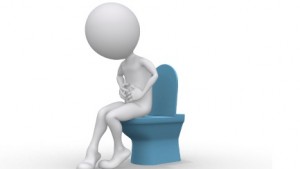Recognising the Symptoms of Irritable Bowel Syndrome
 The gut disorder irritable bowel syndrome (IBS) is a common but chronic condition for which there is no cure. The cause of IBS is not yet known either and the condition can strike at any age with women more likely to develop IBS than men.
The gut disorder irritable bowel syndrome (IBS) is a common but chronic condition for which there is no cure. The cause of IBS is not yet known either and the condition can strike at any age with women more likely to develop IBS than men.
Typical symptoms include abdominal pain, bloating and bouts of diarrhoea and constipation but most sufferers will find their symptoms come and go, with occasions when they are more severe.
For those with IBS that is less severe, their symptoms will tend to centre on gas and bloating with only occasional diarrhoea or constipation. While you may need to go to your doctor occasionally when the IBS flares up, you are more likely to be able to control your condition with over-the-counter medication from the pharmacist.
When IBS is more severe, you can expect to have flare-ups more regularly with a longer recovery time in between bouts. You may need stronger pain relief from your doctor. When IBS is more severe, sufferers will often need time off work because leaving the house isn’t possible.
In really extreme cases, an IBS sufferer may have to be admitted to hospital to deal with the dehydration and excessive gut pain that comes from the symptoms.
As the cause of IBS is not known, the treatment can vary. Sometimes the symptoms will be triggered by food allergies or hormonal imbalance. Getting food and nutrition right is seen as the most effective way of managing IBS and while there has been conflicting advice on the role of fibre in alleviating symptoms, current advice suggests that soluble fibre found in oats, nuts and seeds does help ease symptoms.
IBS sufferers should also avoid drinking caffeinated or carbonated drinks and reduce the amount of alcohol they have. Herbal teas and water are essential for soothing the gut.


Comments are closed.